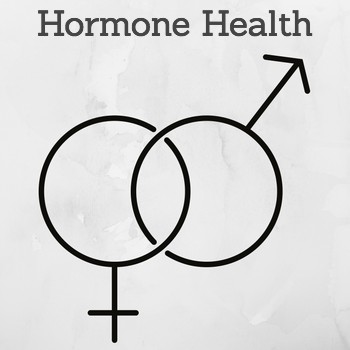Hormone’s are a popular topic of discussion with most of my female patients regardless of age. It often becomes a key part of the case because hormones influence most vital processes in the body and affect how we feel, how we think and how we look. In my experience, restoring a hormone imbalance provides significant relief and results in improvements in quality of life.
Here are the most come questions and answers that I encounter in my practice:
Could I have a hormone imbalance?
Hormone imbalances can present in many ways. They affect us both physically and mentally. If you are experiencing concerns with your periods, weight management, fertility, drive and libido and mood changes including frustration, irritability, depression, anxiety, it would be worthwhile to have your hormones assessed.
What are signs of a progesterone deficiency?
Signs and symptoms of a progesterone deficiency can include anxiety, breast tenderness, weight gain, spotting between or leading up to your period, acne, short cycles, PCOS and infertility. These can be revealed with specific questioning in your consultation. This imbalance in common in perimenopause or can be caused by excessive stress and adrenal dysfunction. Progesterone deficiency closely mirrors the symptoms of estrogen excess.
What are signs of estrogen excess?
Signs and symptoms of estrogen excess include anxiety & nervousness, heart palpitations, breast tenderness, heavy & irregular periods, decreased sex drive, PMS, irritability, mood swings, headaches and weight gain. Common causes include excess environmental exposure through our food and cosmetic products. You can work with a naturopathic doctor to reduce this exposure and improve your body’s ability to metabolize the excess estrogen out of your body.
What are signs of a estrogen deficiency?
Signs and symptoms of an estrogen deficiency include dryness, depressed mood, foggy thinking, night sweats, insomnia, low libido and sexual sensation. These can be revealed with specific questioning in your consultation. A common cause includes menopause and adrenal dysfunction.
What is the best way to have my hormones tested?
The best way to have your hormones tested is through saliva or urine. In these ways you are able to measure active hormone levels and metabolites. This differs from blood testing because blood levels measure your inactive and active levels of hormones thus making it hard to know what imbalances may be present. Testing also should to be done at a specific time of your cycle when levels are the most predictable. This depends on your age and the specifics of your menstrual cycle.
Is hormone testing covered with Naturopathic Doctors?
OHIP does not cover saliva or urine hormone testing regardless of whether the requisition is from your medical doctor or naturopathic doctor. If you have extended health insurance you could look into the specifics of your coverage as it varies from person to person. Some plans have coverage for alternative lab testing or a health care spending account can be used.
How can a hormone imbalance be corrected?
There are certain herbs and nutrients that can support specific hormone imbalances and address the cause. Depending on the extent of the imbalance revealed through testing, hormone replacement may be necessary. Certain Naturopathic Doctors have extended training in bioidentical hormone replacement therapy which is a great option in difficult to treat cases.
What is Bioidentical Hormone Replacement Therapy (HRT)?
Bioidentical HRT are hormones that are identical in molecular structure to the hormones women/men make in their bodies. They are synthesized from a plant chemical extracted from yams and soy. Naturopathic Doctors use topical (transdermal) forms as opposed to oral forms. Topical bioidentical hormones have fewer side effects compared to conventional HRT. Conventional HRT typically use synthetic oral forms such as conjugated equine estrogens, premarin and progestins.
Is hormone replacement therapy safe?
Hormone replacement has come a long way since its initial use. The main concerns with HRT include your risk of blood clots, breast cancer and endometrial cancer. There is an increased risk of breast cancer, endometrial cancer and blood clots with ORAL estrogen. With TRANSDERMAL estrogen, there is no risk for blood clots and a decreased risk of breast cancer compared to oral estrogen. Added natural progesterone prevents endometrial cancer and has the added benefit of protecting breast tissue and reducing the risk of breast cancer. In summary, the combination of transdermal estrogen WITH progesterone (oral or topical) has no risk of blood clots, minimal risk of breast cancer and no risk of endometrial cancer.
If you have any questions please do not hesitate to contact me at [email protected]. You can always book a free 15-min consult at Sage Naturopathic Clinic if you would like your questions addressed in person.
Dr. Deanna Walker, ND
